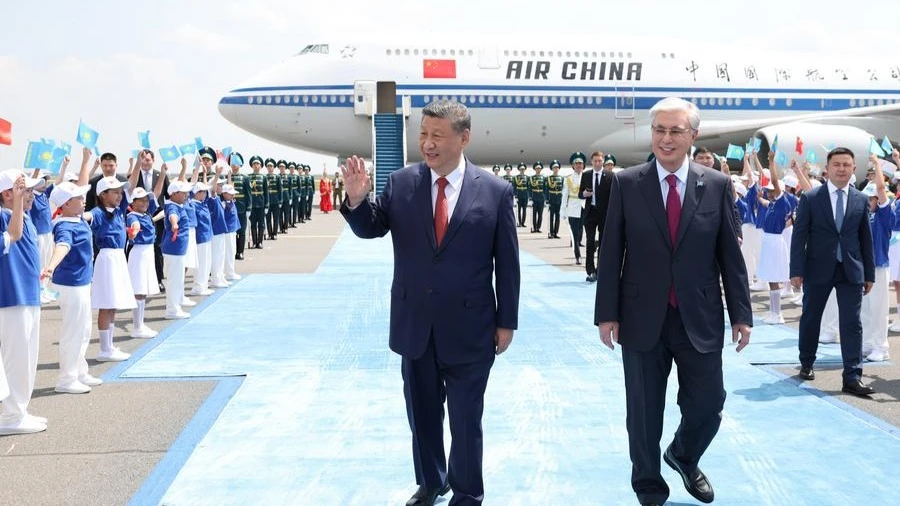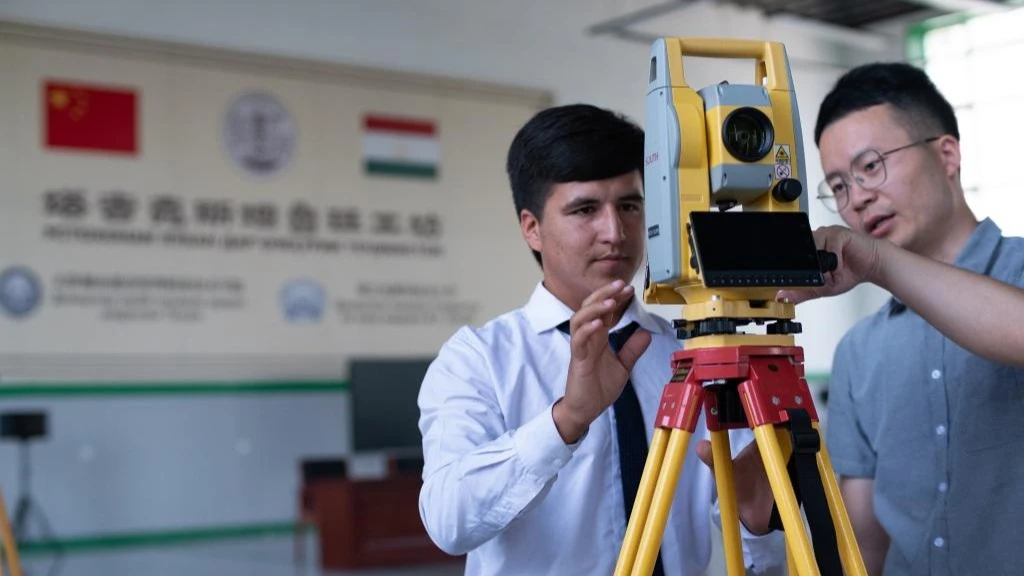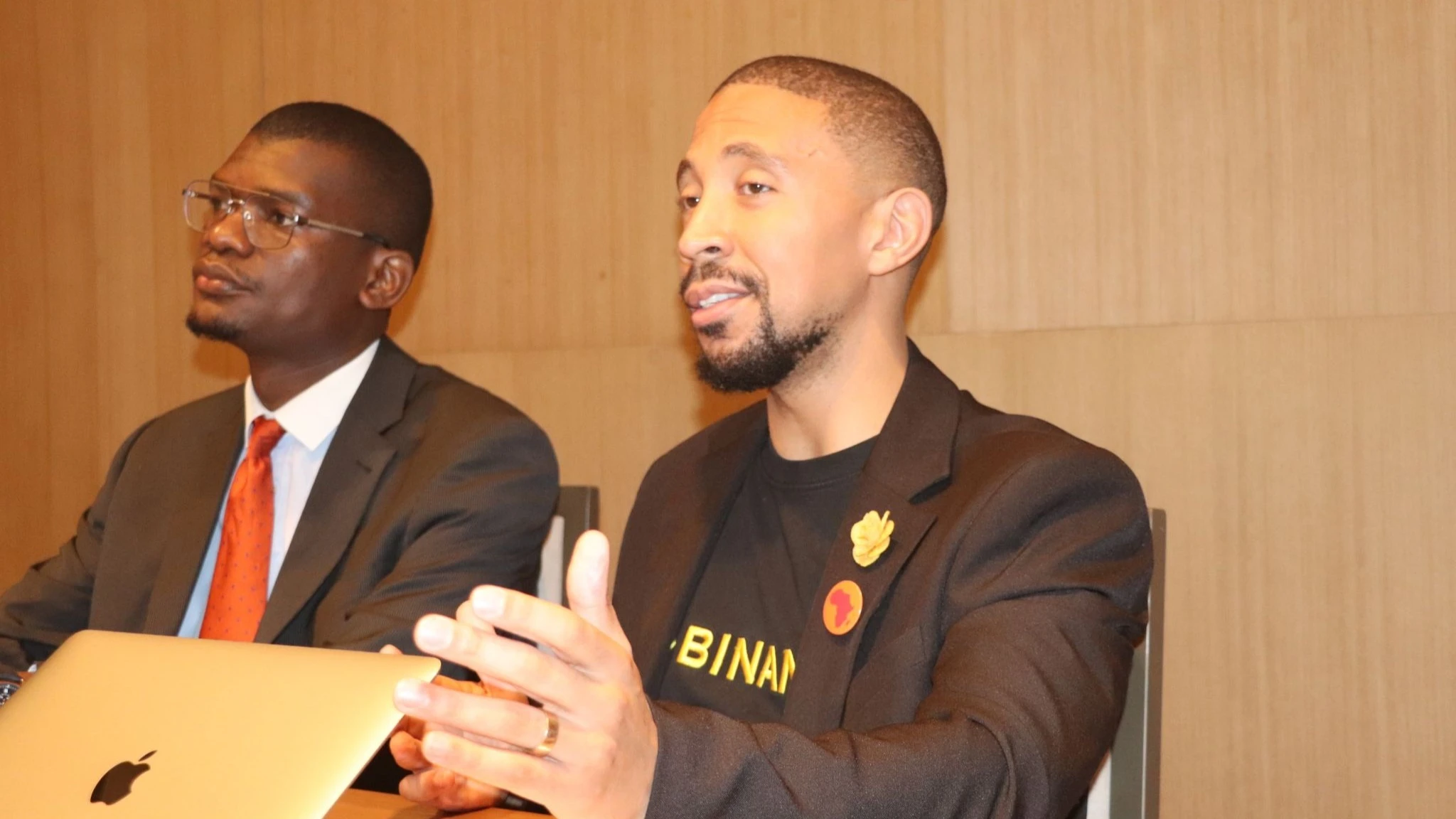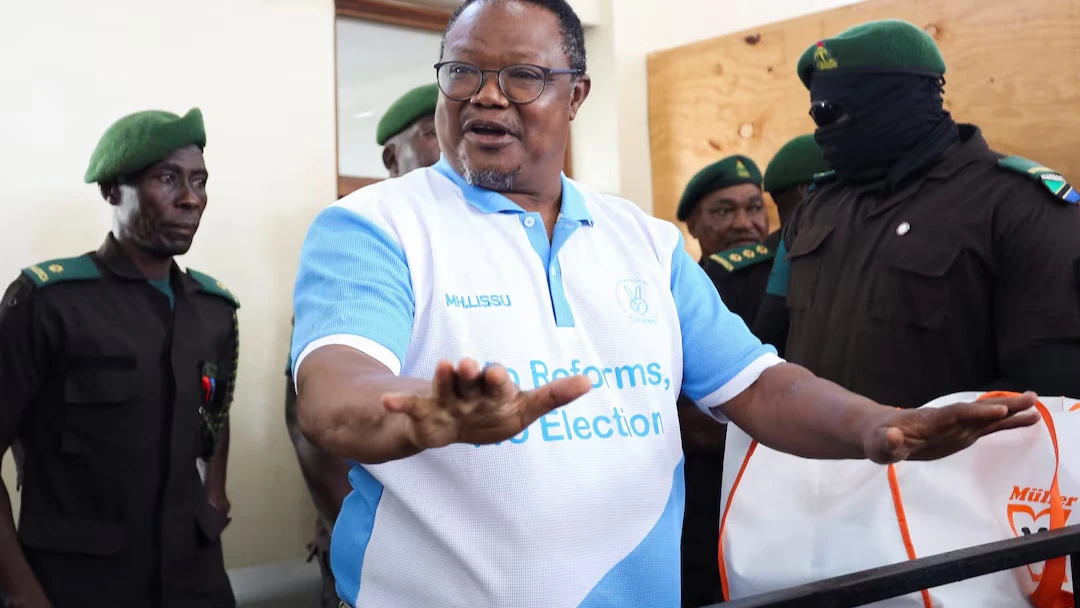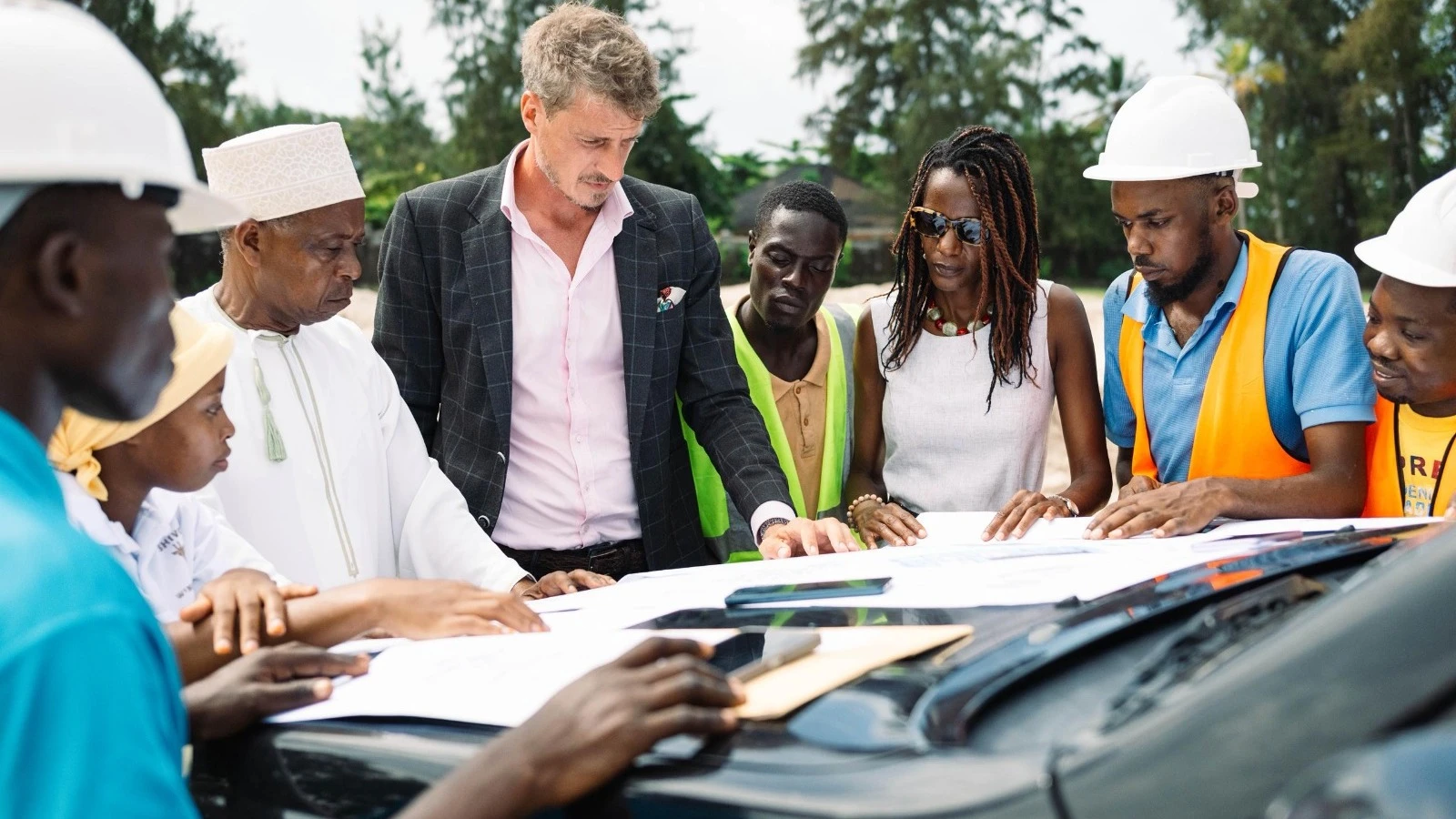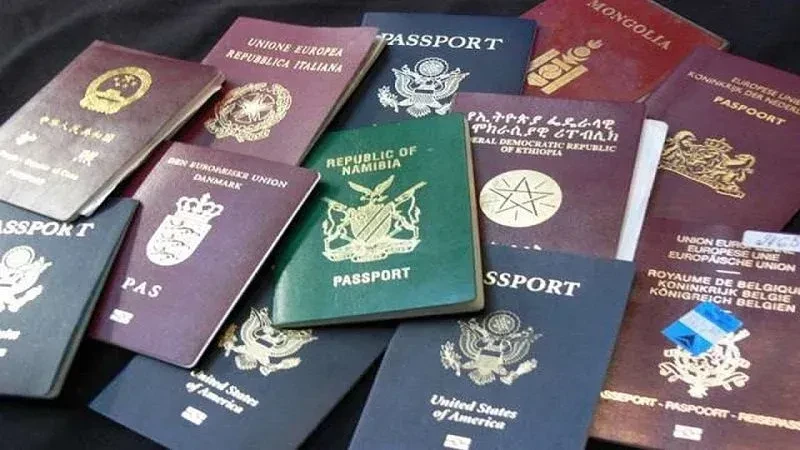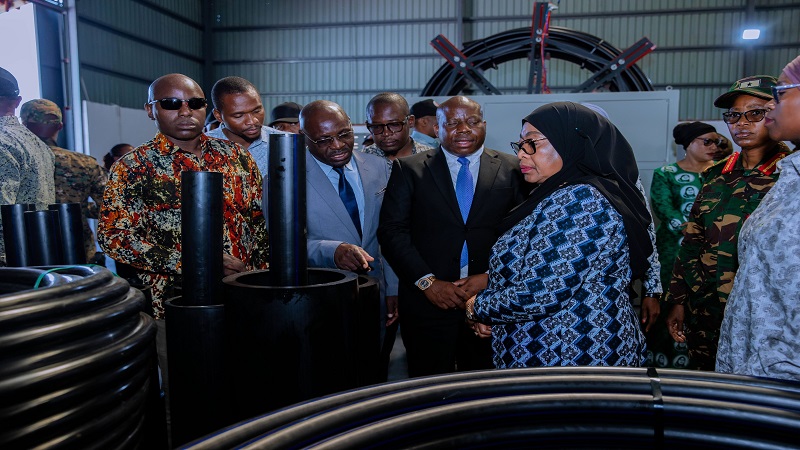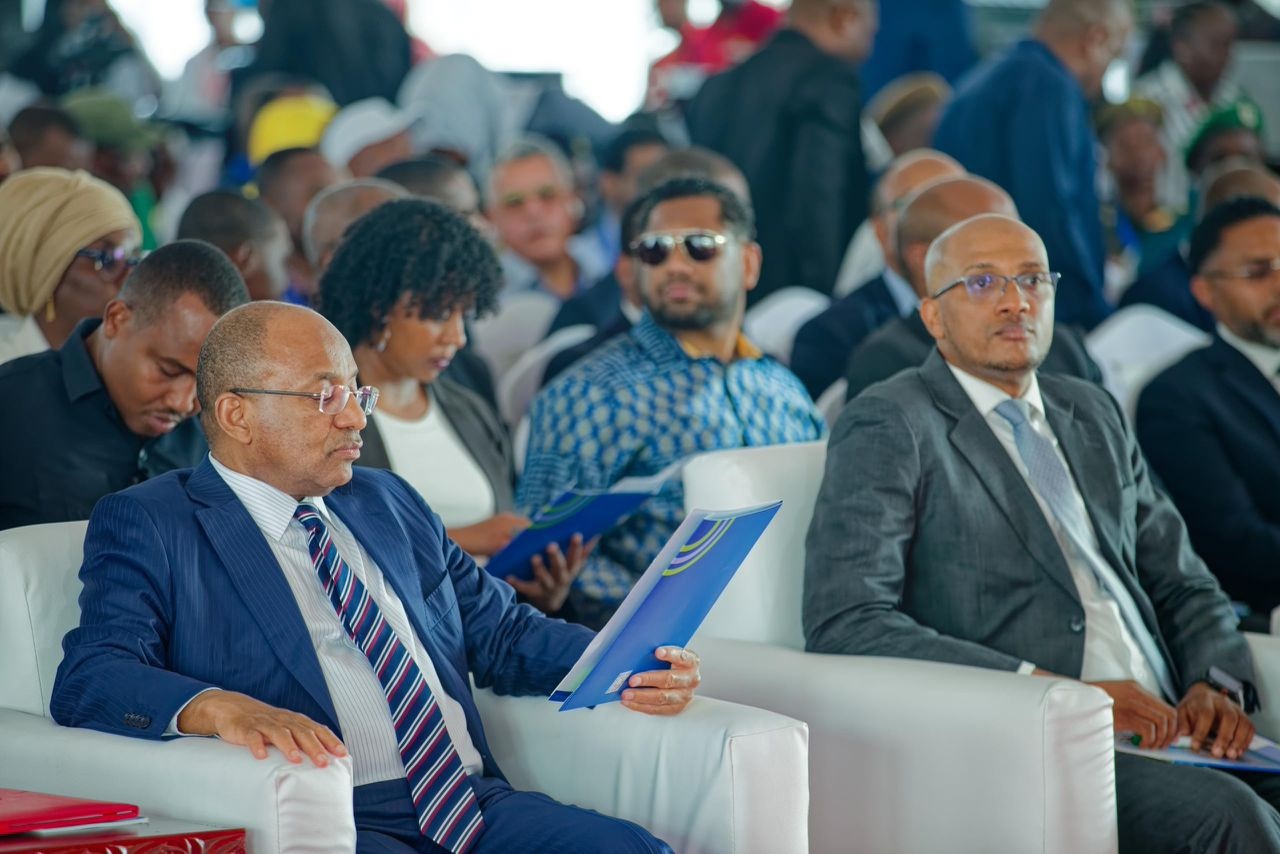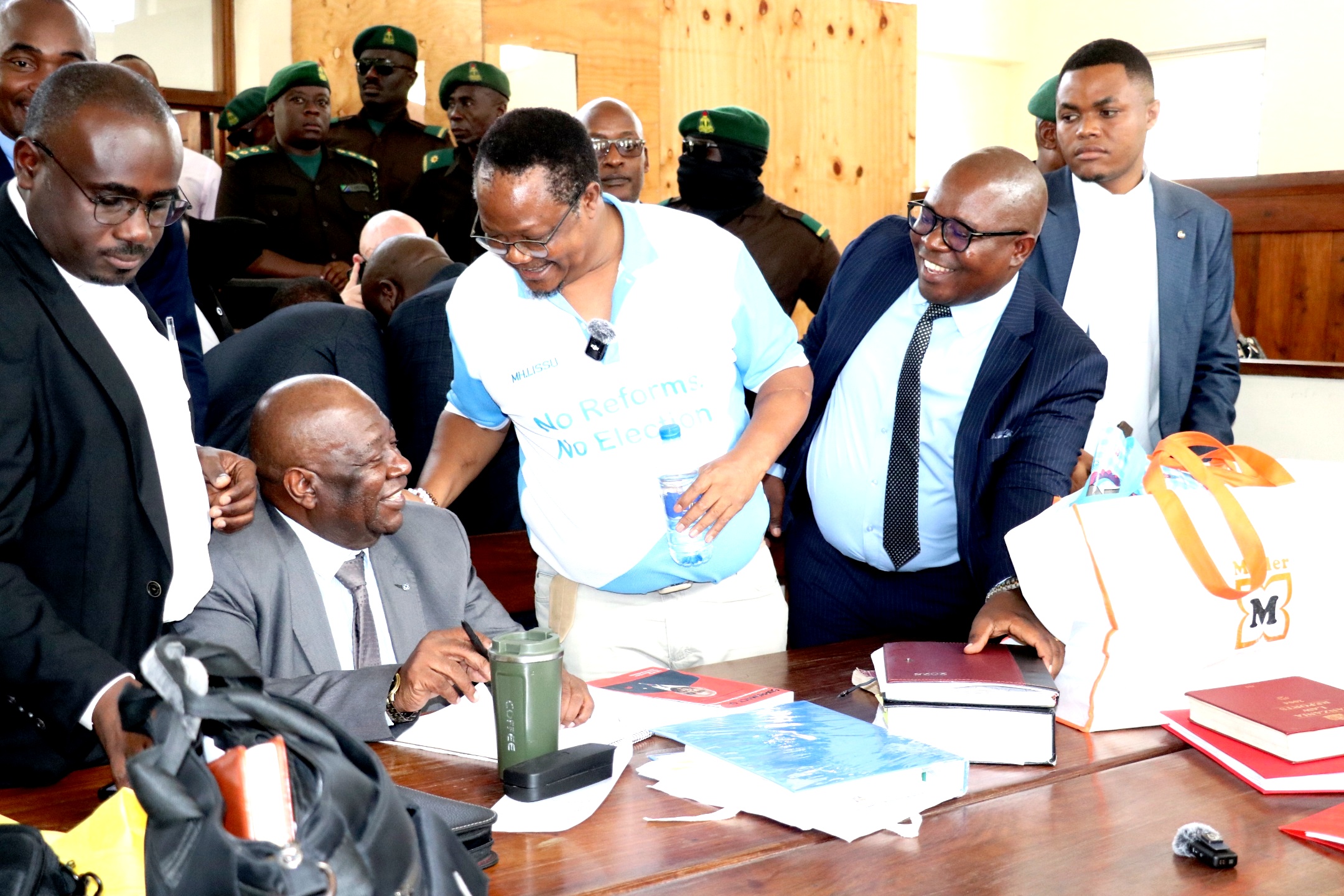China, Central Asia to draw new blueprint for cooperation at summit
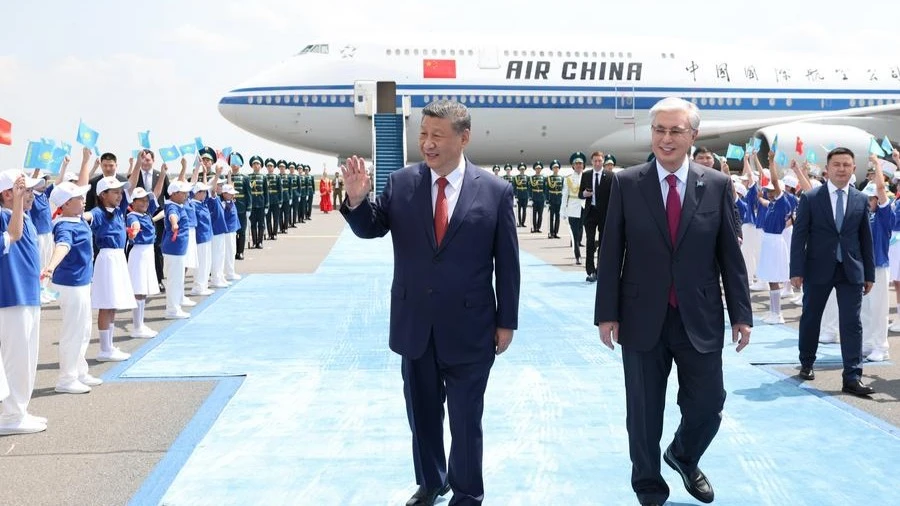
Leaders of China and five Central Asian countries convene Tuesday in Astana, the capital of Kazakhstan, for the second China-Central Asia Summit, with the aim of charting the course for future cooperation and deepening ties.
The summit represents a historic first -- the first time the gathering is being held in a Central Asian country. Chinese President Xi Jinping is expected to deliver a keynote speech.
According to Chinese Foreign Ministry Spokesperson Guo Jiakun, the summit will open up new space for Belt and Road cooperation and build an even closer China-Central Asia community with a shared future.
The inaugural summit was held two years ago in China's northwestern city of Xi'an, where leaders agreed to hold the top-level gathering every two years alternately in China and Central Asia.
Xi arrived in Astana on Monday to a blue-carpet welcome. The color -- featured on Kazakhstan's national flag -- symbolizes the sky and holds deep cultural significance in the country.
Kazakh President Kassym-Jomart Tokayev, leading a team of senior officials, welcomed the Chinese president at the airport, and hosted a grand ceremony to mark his arrival.
Kazakh children and teenagers recited heartfelt verses for Xi: "China-Kazakhstan friendship heart to heart, the Silk Road shines forever bright;" "You help me and I help you, peace and happiness forever true."
The two countries should practice true multilateralism, and resolutely safeguard the common interests of the vast majority of developing countries, Xi said.
Kazakhstan-China relations are at the highest level, said Aidar Amrebayev, director of the Center for Political Studies at the Institute of Philosophy, Political Science, and Religious Studies of the Kazakh Ministry of Science and Higher Education.
"Both a partner and a friend to China," said Amrebayev, "Kazakhstan, one could say, also serves as a bridge connecting China with many countries across Eurasia."
There are various formats of cooperation with Central Asian countries, and the most effective and successful is precisely the China-Central Asia cooperation mechanism, he said.
During the Xi'an summit in May 2023, Xi and the presidents of the five Central Asian countries signed the Xi'an Declaration, vowing to work together to build a closer China-Central Asia community with a shared future.
The Belt and Road Initiative has played a central role in advancing cooperation between China and the Central Asian countries. Thanks to the initiative, China now stands as Central Asia's top trading partner and major investment source. In 2024, two-way trade soared to almost 95 billion U.S. dollars, up by 5.4 billion dollars from the previous year.
In 2013, Xi first laid out his vision for building the Silk Road Economic Belt -- a key component of the initiative in Astana when delivering a landmark speech at Nazarbayev University.
When talking with Tokayev, Xi called for efforts to consolidate strengths of traditional cooperation in trade, investment and energy, advance the construction of cross-border railway projects and the upgrading of port infrastructure, promote connectivity, high-tech cooperation as well as green and sustainable development.
As Kazakhstan is a landlocked country, Neafie said, the initiative, along with broader trends in globalization, has helped people in the country become more globally connected and outward-looking.
Abdugani Mamadazimov, a scholar at Tajik National University, said that since the launch of the initiative, Central Asian countries have actively aligned their national development plans and strategies with it.
The upcoming summit, he noted, is expected to further deepen the Belt and Road cooperation in the region, particularly by accelerating progress in transcontinental land transportation and logistics infrastructure, and promoting the growth of joint ventures across a range of industries and service sectors.
Top Headlines
© 2025 IPPMEDIA.COM. ALL RIGHTS RESERVED









